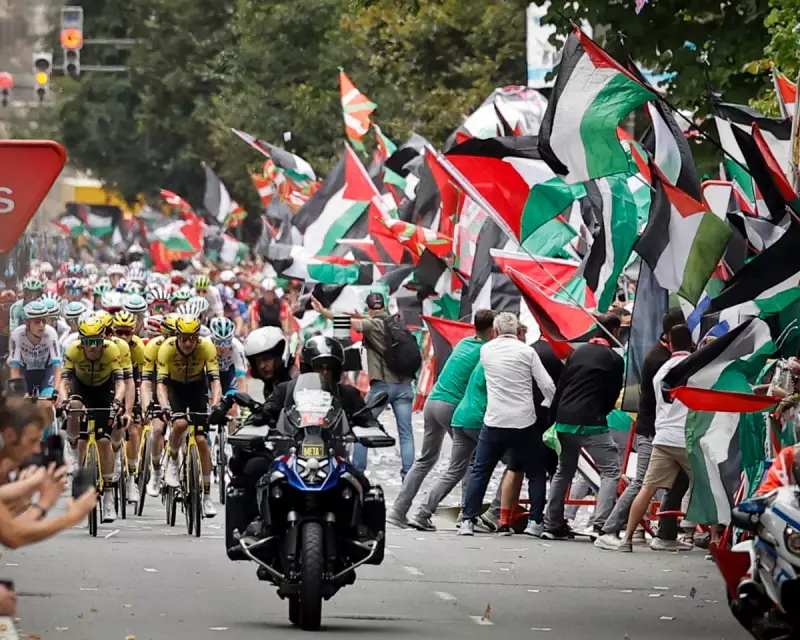
In an unprecedented move that has shaken the world of professional cycling, the Israel Premier Tech team has been compelled to compete under a neutral banner at this year's Vuelta a España. Spanish authorities intervened just days before the race's final stages, citing significant security concerns linked to ongoing pro-Palestinian protests.
Last-Minute Identity Crisis
The decision, confirmed by the Union Cycliste Internationale (UCI), means the team will appear simply as 'IPT' on all official documents, race jerseys, and public communications throughout the remainder of the Spanish Grand Tour. This dramatic development comes after organisers raised alarms about potential disruptions during the race's critical concluding phases.
Team principal Sylvan Adams expressed his profound disappointment, stating the move felt like "a victory for those seeking to intimidate". The Canadian-Israeli billionaire emphasised that his squad represents "a cycling team, not a political entity", yet finds itself at the centre of an international political storm.
Security Takes Priority Over Sport
Race organisers Unipublic defended their position, highlighting that rider safety and event security must remain paramount. The Vuelta has already witnessed several protests, including demonstrators briefly blocking roads during earlier stages, creating hazardous conditions for competitors travelling at high speeds.
The Spanish government's involvement underscores the seriousness of the situation, with officials reportedly concerned that the team's original name could provoke further demonstrations that might compromise the safety of riders, spectators, and event staff alike.
Cycling's Political Tightrope
This incident represents one of the most significant political interventions in modern cycling history. While the sport has occasionally grappled with political controversies, rarely has a team been forced to alter its identity mid-competition due to external political pressures.
The development raises challenging questions about where sports organisations should draw the line between maintaining political neutrality and capitulating to external pressures. Many within the cycling community are now debating whether this sets a concerning precedent for future international competitions.
As the Vuelta approaches its dramatic conclusion in Madrid, all eyes will be on how the IPT riders perform under their temporary identity—and whether this controversial decision ultimately achieves its goal of ensuring a safe and uninterrupted finale to one of cycling's crown jewels.




